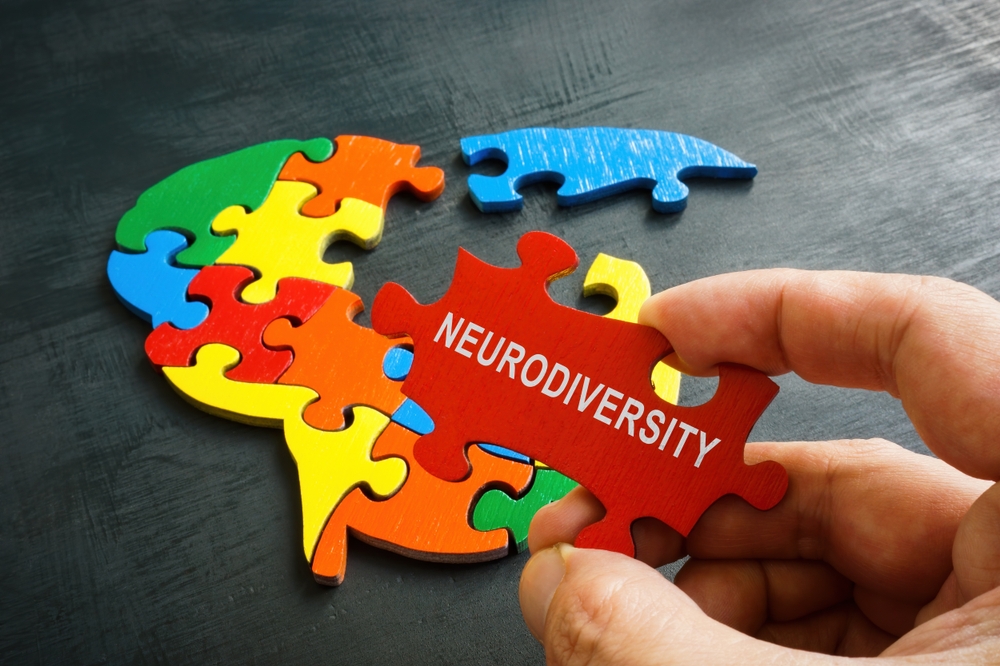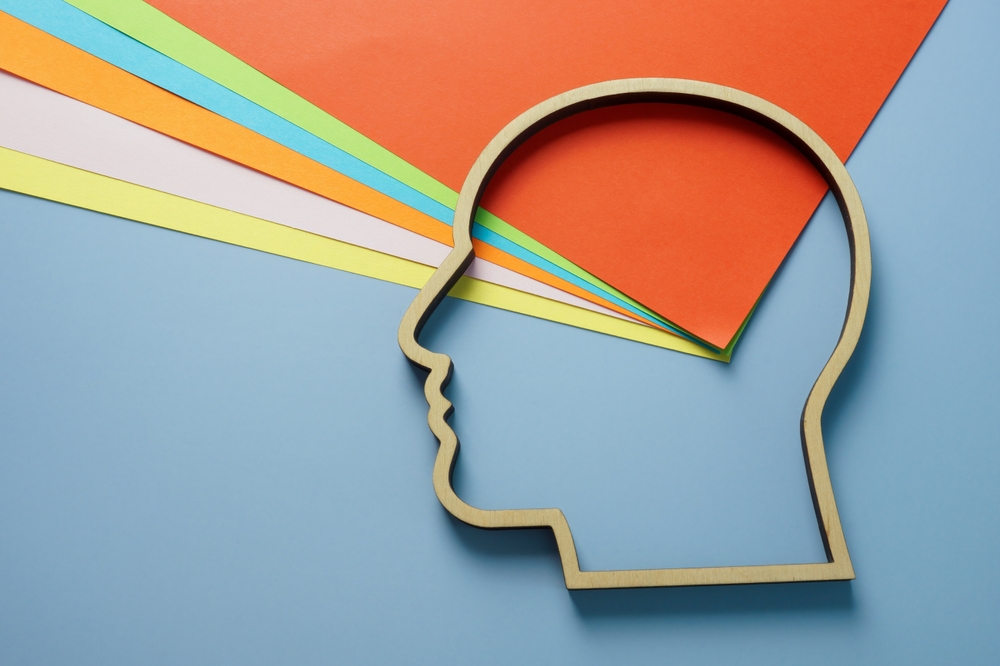Many celebrities have neurodivergent conditions including ADHD, and while certain stereotypes around ADHD can lead to stigma, it can be useful and inspiring to know that having ADHD can help you achieve great success.
What it Means to be Neurodivergent

Being neurodivergent means having a brain that functions differently from what is considered “neurotypical.” This term encompasses various conditions, including Autism Spectrum Disorder (ASD) and Attention-Deficit/Hyperactivity Disorder (ADHD).
Individuals with ASD may experience challenges in social communication, exhibit repetitive behaviors, and have specific interests. They might also have sensory sensitivities, although each person’s experience is different, which has given way to the use of the term ASD to show that autism is a spectrum. However, as a general rule, those with ADHD often struggle with inattention, hyperactivity, and impulsivity, making it difficult to focus on tasks, stay organized, or remain still.
The symptoms of neurodivergent conditions vary widely. For instance, in ASD, symptoms range from mild to severe, affecting social interactions and behavior to different degrees. In ADHD, some individuals may be more inattentive, while others are more hyperactive or impulsive. Diagnosing these conditions typically involves comprehensive assessments by healthcare professionals, including behavioral observations, discussions, and sometimes psychological testing.
Treatment for neurodivergence often includes a combination of therapies and medications. For ASD, behavioral therapies like Applied Behavior Analysis (ABA) can be effective, along with speech and occupational therapies. For ADHD, stimulant medications such as Ritalin or Adderall are commonly prescribed, alongside behavioral therapies to help manage symptoms.
Living with ASD or ADHD
Life for neurodivergent individuals can be challenging, especially in environments designed for neurotypical people. Children may face difficulties in school, such as trouble with social interactions or focusing on lessons, leading to frustration and anxiety. Adults might struggle with maintaining employment or relationships due to difficulties with organization, communication, or coping with change.
However, with appropriate support and accommodations, neurodivergent individuals can thrive. Many develop unique strengths, such as creativity, attention to detail, and problem-solving skills, which can be harnessed in various aspects of life, highlighting the importance of acceptance and understanding in society.
Unfortunately, there are some common and damaging myths around ADHD and ASD. Stereotyping overlooks individual differences, reinforces stigma, and can prevent neurodivergent individuals from receiving the understanding and support they need to thrive. Instead of perpetuating these myths, it’s vital to recognize each person’s unique strengths and challenges.
Does Elon Musk Have ADHD?

Elon Musk has not publicly disclosed a diagnosis of ADHD, however, he has been open about being on the autism spectrum, specifically identifying with Asperger’s syndrome, a form of Autism Spectrum Disorder (ASD). Musk revealed this during his appearance on “Saturday Night Live” in 2021, where he described himself as the first person with Asperger’s to host the show.
However, it is important to note that Asperger’s is no longer considered a separate diagnosis from autism, and the term is no longer used in the medical community, as autism can range greatly in severity of symptoms, so ASD is a more appropriate term to describe neurodivergent behavior.
Musk’s neurodivergence has played a significant role in his success. His ability to hyper-focus, think outside the box, and approach problems from novel angles has been instrumental in his achievements with companies like Tesla, SpaceX, and Neuralink. However, Musk has also faced challenges related to his condition, including difficulties with social interactions and understanding certain social cues, which he has acknowledged.
Despite these challenges, Musk’s neurodivergence has been a driving force behind his visionary ideas and relentless pursuit of innovation. His openness about being on the autism spectrum has also helped raise awareness and challenge stereotypes, showing that neurodivergent individuals can achieve extraordinary success in their fields.
Being Mindful of Famous People with ASD and ADHD
We should be cautious when discussing or diagnosing celebrities with Autism Spectrum Disorder (ASD) or mental health disorders. While many successful individuals, like Bill Gates, openly discuss their struggles with ADHD, it is essential to avoid making speculative diagnoses of public figures without proper evaluation. Mental health professionals, including psychiatrists and psychologists, follow strict guidelines that emphasize the importance of direct assessment through clinical interviews and other reliable methods. Diagnosing someone from afar, without direct interaction, is not only professionally irresponsible but also risks misinterpretation.
Speculative diagnoses can perpetuate myths and stereotypes about mental health conditions, potentially harming both the celebrity and others who share similar struggles. Publicly labeling someone with a mental health disorder can lead to stigmatization, even when done by professionals.
Diagnosing celebrities in a public forum undermines the mental health profession’s goal of de-stigmatizing mental illness. Instead of promoting understanding, it risks turning private struggles into public spectacles, which can discourage others from seeking the support they need. Therefore, it is crucial to approach discussions about mental health with care and responsibility, ensuring that the focus remains on fostering empathy and reducing stigma.
Getting Help for Your ADHD

If you suspect you have ADHD, it’s important to seek help from a healthcare professional, such as a psychiatrist, psychologist, or primary care doctor. They can diagnose the condition and recommend treatments like medication, behavioral therapy, or counseling. Support may also include organizational coaching, lifestyle adjustments, and joining support groups.
Getting help is crucial because it can improve focus, reduce impulsivity, and help manage daily challenges. Proper treatment allows individuals with ADHD to harness their strengths, improve their quality of life, and achieve personal and professional goals more effectively.
For Children with ADHD
If your child has ADHD, seeking help from a healthcare professional, such as a pediatrician, psychologist, or psychiatrist, is essential. These professionals can provide a formal diagnosis and recommend treatment options, including medication, behavioral therapy, and educational support. It’s also important to create a supportive home environment that addresses your child’s unique needs.
Parents can play a crucial role in helping their children manage ADHD. Implementing effective parenting strategies, and knowing what to avoid when parenting your child with ADHD is essential for their emotional well-being and personal development, by reducing impulsive behaviors and improving focus.
Encouraging creative play is another valuable approach, as creative activities help develop cognitive and emotional skills, which can often be areas of challenge for children with ADHD.
Moreover, parents can support their children academically by implementing certain study strategies tailored to ADHD. These strategies can help improve concentration and study habits, making learning more effective.
By seeking professional help and adopting practical parenting strategies, parents can significantly improve their child’s ability to manage ADHD, leading to better outcomes in both their academic and personal lives.
For Adults with ADHD
Adults who have ADHD or even those who receive an ADHD diagnosis later in life can benefit greatly from seeking specialized help and adopting targeted strategies. Consulting with a mental health professional, such as a psychiatrist or psychologist, is crucial for a proper diagnosis and treatment plan. Effective treatments often include medication, therapy, and lifestyle adjustments tailored to adult needs.
Incorporating strategies to boost cognitive function, can improve focus and memory, essential for managing ADHD symptoms. Additionally, understanding the impact of caffeine on ADHD can be a great help for many adults as it can assist with making informed dietary choices to avoid exacerbating symptoms.
The right diet is essential for those with ADHD as many chemicals and nutrients can make symptoms worse, while others can help to improve people with ADHD’s mental state, as well as ensure they are taking in adequate nutrients, as it can be easy to forget mealtimes. In the workplace, adults with ADHD can benefit from tailored strategies for managing their condition, such as organization techniques and time management tools.
Addressing ADHD comprehensively through professional help and lifestyle adjustments can significantly improve the quality of life and productivity for adults newly diagnosed with this condition, or who are struggling to manage their symptoms.
How the Brain Workshop Can Help
The Brain Workshop offers tailored support for children and adults with ADHD through personalized interventions and expert guidance. Our team includes specialists in ADHD who provide assessments and customized strategies for children and adults. We also offer resources on managing symptoms, including memory improvement and dietary recommendations.
The Brain Workshop’s FAQs and media resources provide additional insights into our approach, emphasizing a comprehensive, evidence-based method for effective ADHD management. Our services are designed to enhance focus, organizational skills, and overall quality of life for individuals with ADHD.






